The green-shirted player sprinted effortlessly down the length of the football pitch.
He reached the final third of the grassy field – and passed the ball to his waiting teammate, who quickly sprinted into the penalty box.
The striker connected easily with the pass and he drilled the ball into the bottom right corner of the net. The hapless goalkeeper was reduced to a mere spectator – unable to save the shot.
Sublime movements
From the touchline, I clapped along with the players too, as they celebrated their goal.
The 11 on the pitch could easily be mistaken for professionals, with their sublime passes and movements. So it was hard to tell that this group of footballers are suffering from cerebral palsy (CP), a genetic condition that affects the muscle development and body’s motor skills. As a result, this causes spasms, unsteady gait and other involuntary movements.
But despite their disabilities, these footballers represent Singapore and have come home with medals – including a silver in the Asean Para Games at the beginning of this year.
The players are from the Singapore Disability Sports Council (SDSC). They were playing with intellectually disabled players.
Shorter Game
I caught the CP footballers in action at one of their recent training sessions.
How do the CP players train? Said coach Mohamed Zainudeen, 44, who is affectionately known as Coach Zai, “We focus on ball feeling, passing drills and finish with one vs. one drills. And we try to end with a two-sided game.” This is to give players some actual match practice – to prepare for competitive games.
While the CP players usually play seven-a-side football, they were playing with 11 players in the team that afternoon.
“We had wanted to give the boys a chance to play a full-sided game today. But we had only 15 minutes of four quarters,” Coach Zai said. So this was a shorter game. In CP football, games have two 30-minute halves. (A standard non-CP football game has two halves of 45 minutes each).
Football has helped them to manage their condition
By playing football, it has definitely helped these players, to manage their CP condition and to coordinate their muscles better.
Said Muhammad Shahidil bin Saidi, a 25-year-old warehouse assistant, “In football, you must run a lot and there is a lot of movement going on, so that helps to build up strength.”
So through playing football, Muhammad Shahidil, who comes from a soccer-mad family, has become a lot more confident and independent. In fact, he now confidently jokes about himself as being the “top striker” in the team, with about seven or eight goals so far.
Playing football has also done wonders for 25-year-old Muhammad Taufiq bin Baharin, an Institute of Technical Education Engineering student, “Since I started playing in 2010, it’s helped with my stamina and in gaining muscle mass. Now I feel much more energetic and active.”
While Muhammad Taufiq has no favourite football player, he often watches the professionals in action so that he can emulate them. The left-winger said, “I copy their skills and try to imitate them. Doing so has helped to improve my game further.”
Getting regular exercise through football
For others, playing football has given them a fun way of getting a good form of exercise. Said 30-year-old self-employed stationery supplier Balasubramanian s/o Annamalai, “I am working and doing my own business without getting exercise on weekdays. It is only on weekends that I am free to exercise.”
He added, “Also, because I have CP, staying home and watching TV all day will make my body very weak.”
Balasubramanian, who plays in defence and is currently the oldest player on the team, plans to retire soon though, as he feels that he is getting old. The self-professed Manchester United fan said, “My favourite player, Ryan Giggs (a Manchester United footballer), played until aged 40 when he retired! But I’m definitely not aiming to play for another 10 years!”
Improved by leaps and bounds
These CP players, whose age ranges from 21 to 30 years old, have certainly improved by leaps and bounds since they initially took up football. This CP football team was only formed officially in 2010. But in these four short years, they have taken part in several friendly matches and tournaments overseas.
Said Singapore Disability Sports Council (SDSC) sports officer Dilys Goh, 25, “We constantly try to let them play overseas and are always building the team up and preparing them for upcoming overseas tournaments.”
So far, these players have travelled to Malaysia, Austria and the United Arab Emirates, for both friendly games and football tournaments.
Their next mission now, is the 2015 Asean Para-Games, which will be held on home soil. Added Dilys, “Yes, the players are definitely aiming for the gold medal. They do have the potential to do so, as they just narrowly lost out on a gold medal in Myanmar at the Asean Para Games earlier this year.”
Representing Singapore and winning the silver had definitely been one of the biggest highlights of the team’s relatively short “professional” footballing career.
“That was definitely a big milestone for them,” said Dilys proudly.
Finally receiving carding
Another major milestone for this CP football team is that they have finally received carding this April, based on their good showing at this year’s Asean Para Games. Carding is where the athletes receive allowances for their time and sacrifices made for training and competitions.
Said Dilys, “This is an additional boost for them as they are finally recognized for their had work and get to enjoy the benefits that a national athlete can receive from sports.
So by being finally granted carding, this means that these CP footballers will be representing Singapore in more major tournaments.
Has big dreams for football
How do these players themselves feel about having these opportunities and representing Singapore? Said 21-year-old Republic Poly engineering student, Muhammad Shafiq bin Ariff, “I felt really honoured to represent Singapore because I was a nobody before. If it were not for Coach Zai and the team, I would not be playing in this squad. So I feel really blessed and lucky to have these opportunities.”
Muhammad Shafiq, who usually plays as a left-winger, joined the team only in March last year, when he had bumped into Coach Zai at the mosque – purely by chance. He was subsequently recruited to play football, and has never looked back since.
Now Muhammad Shafiq, who is also an ardent England and Chelsea fan, has big dreams for his footballing career. He says, “I eventually aspire to be like Zola (Chelsea legend, Gianfranco Zola)!” And as long as he continues training as he is, his dream may come true – one day.
Support these CP football players and help them achieve their dreams. Click here.

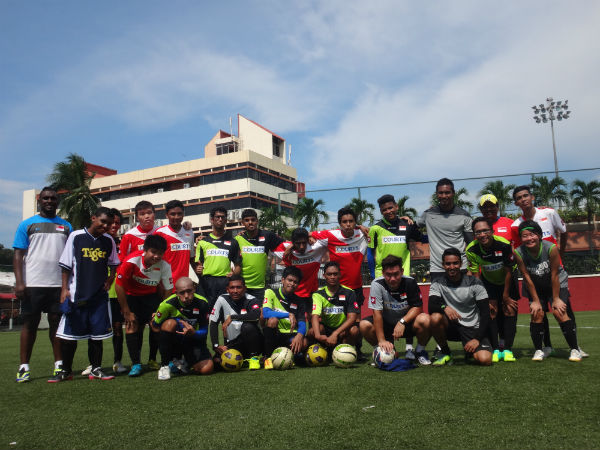
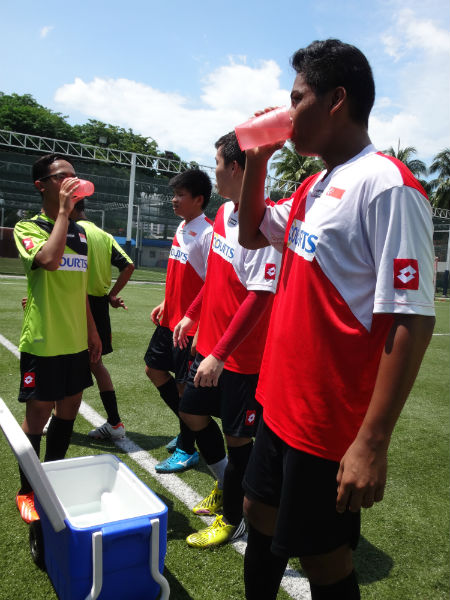
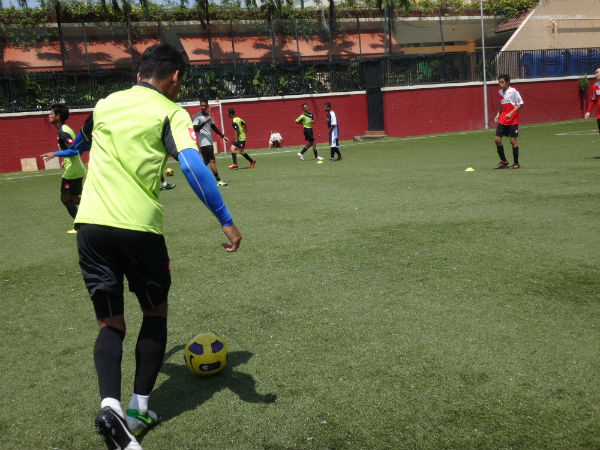
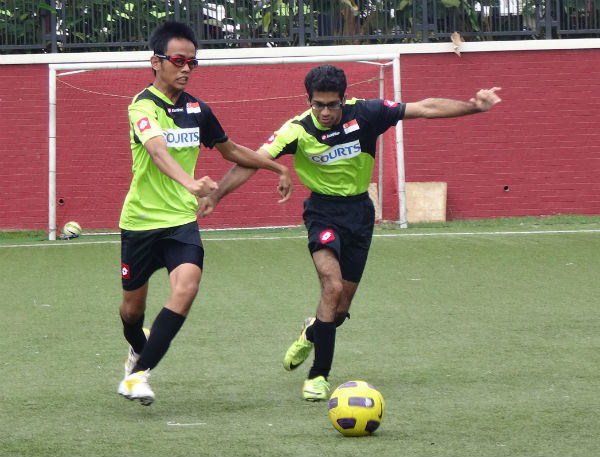
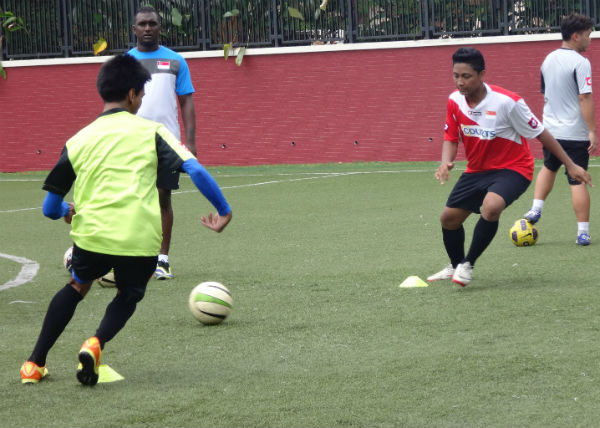
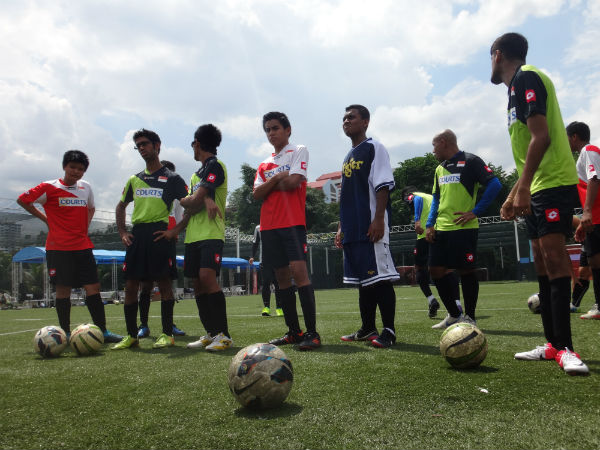
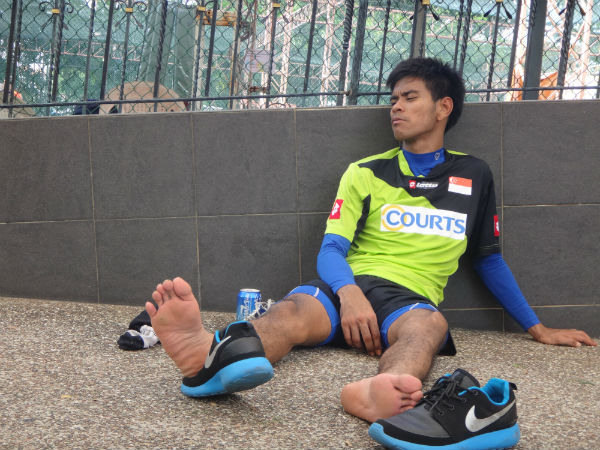
Leave a Comment